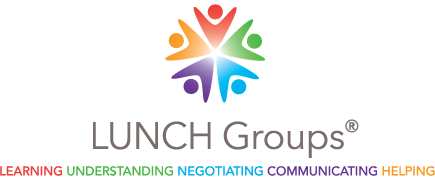First off, I want to thank you for entrusting us to work with your children. There are many programs from which you can select and, while I think we have a model that works well for the students we accept, ultimately, it’s a matter of developing a trusting alliance. This leads to one of the most important elements in our program: Communication.
Some children will find our methods unsettling because we are focusing on deficits in communication, working to increase cognitive flexibility, and in some cases, addressing shyness or oppositionality. If your child says they are being treated unfairly, please know that we have established positively-focused procedures for addressing this. However, it is critical that you contact us immediately when this occurs before you speak to your child about it. Many parents will make statements that offer a child a reward for coming to the group, tell them they can "try" it out and see, or otherwise give the child control. These well-meaning parent interventions often adversely impact a child’s progress in our program. If you feel confused or dissatisfied with the level of information being provided to you or just want to reach out, we welcome the opportunity to discuss our methods in greater detail.
No matter the degree of positive change a child makes during program hours, it is highly unlikely they will display those gains at home or in the community without additional intervention. This is where Parent Support comes in. We work with families in a number of ways to provide information and tools that parents can use. Our School Year and Summer Programs include slightly different levels of parent support. See below for details.
Parent Meetings
Parents attend online meetings where they can view videos of their children engaged in program activities. Meetings typically last for one hour and are held for both the summer and school year programs. The initial meeting is a parent orientation to inform families what to expect and how to support their children in the program.
Additionally, we use this time to discuss topics reviewed during Webinars and ask questions or present situations to help them better understand how to support their children in the program. Sometimes there are as few as 1-2 parents in attendance, while other meetings have up to 15 families in attendance.
Subsequent meetings cover the behavior management essentials, social learning theory, basics of cognitive behavioral techniques, and advanced topics.
Note: These meetings are for Parents Only. Under no circumstances are children permitted to attend.
Office Hours
For school year programs, we have begun to offering short scheduled appointments with small groups of parents from the same program. This allows for more individualized consultation and was well-received during our pilot program last school-year. We plan to resume this activity for our upcoming school year program.
Online Tutorials
We have tutorials covering many of our group procedures, such as how to drop off and pick up your child, use our LUNCH Points™ system, access videos, and other topics. Sometimes, parents have special situations where they are not certain how to accomplish a task related to our program. In those instances, personalized video tutorials can be created at no additional charge to families.
Emails & Phone Calls
Parents who participate in any program are welcome to use email consultation (this can be via regular email or through more secure means that require a login). Sometimes parents will use communication to ask basic questions, report behaviors observed between sessions, and related topics. If we feel that the topic warrants a follow-up telephone consultation, that will be arranged.
Private Consultation
As mentioned above, phone consultation occurs at the discretion of Dr. Gale or Dr. Mazor. The same is true for face-to-face individual family meetings. However, some families may wish to discuss situations regarding their child in individual meetings. They may also wish to request services, such as school observations, additional assessment, or individual therapy for their child. Those services fall outside what is covered as part of the LUNCH Groups® and are offered at additional cost to families.





